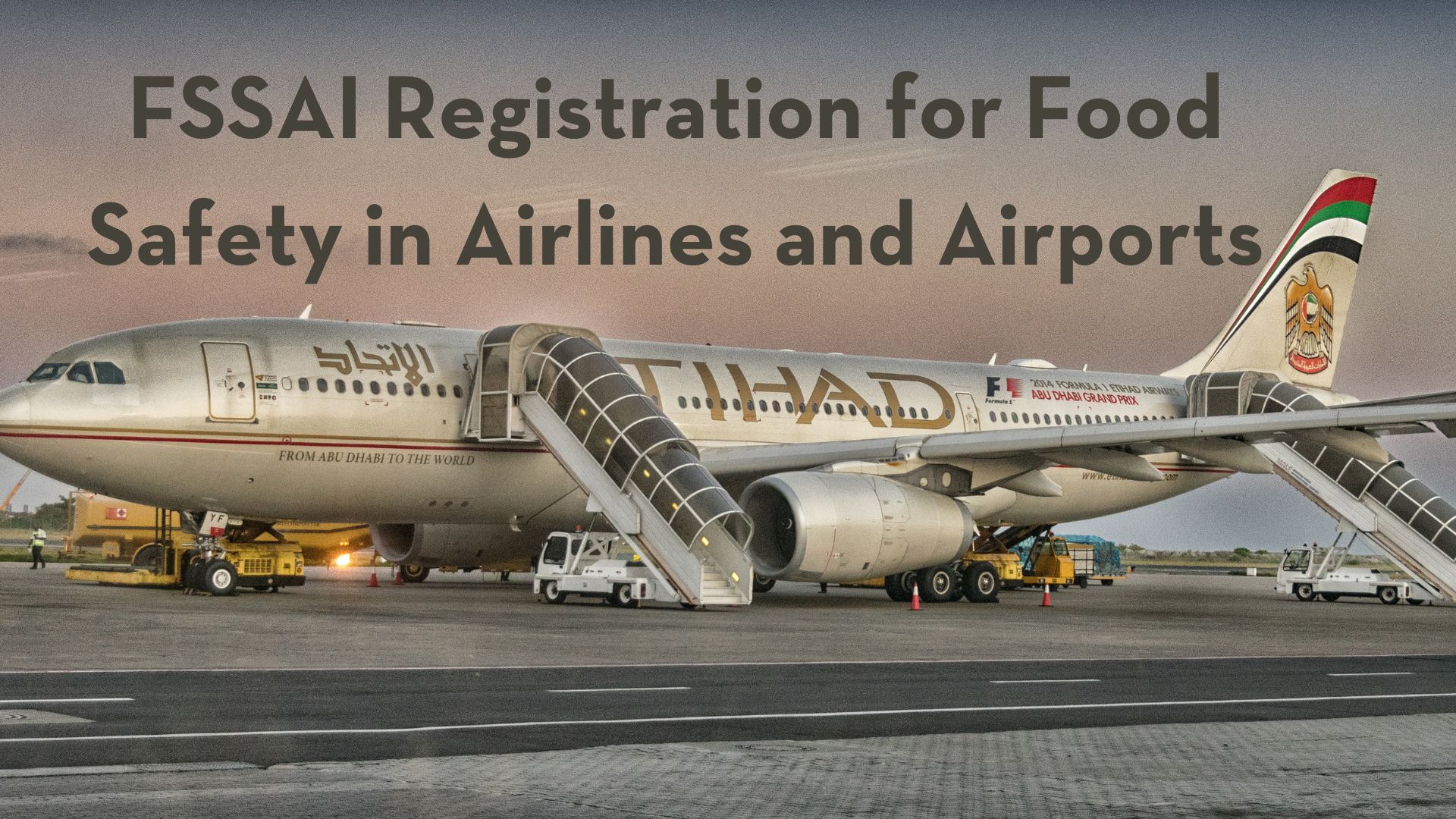In the dynamic and fast-paced world of aviation, ensuring food safety is paramount for airlines and airports. With millions of passengers served daily, the risk of foodborne illnesses and safety concerns is a critical challenge that demands meticulous attention. The Food Safety and Standards Authority of India (FSSAI) plays a pivotal role in mitigating these risks through its comprehensive regulatory framework. This article delves into the significance of FSSAI Registration for food safety in the unique context of airlines and airports.
Challenges in Airline and Airport Food Safety:
Airline and airport environments present distinctive challenges for ensuring food safety. The high volume of meals served, the diversity of passengers with different dietary needs, and the constraints of in-flight catering demand a rigorous approach to maintaining food safety standards. The potential for contamination, improper storage, and handling during transportation further underline the need for stringent regulations.
Importance of FSSAI Registration:
FSSAI Registration acts as a linchpin in upholding food safety standards in the aviation sector. Here are key aspects emphasizing its importance:
Regulatory Compliance:
FSSAI Registration ensures compliance with national food safety regulations, providing a standardized framework for airlines and airport catering units.
Consumer Confidence:
For travelers, knowing that the food served on board or at the airport adheres to FSSAI standards instills confidence in the quality and safety of the meals provided.
Prevention of Foodborne Diseases:
By enforcing strict guidelines on hygiene, storage, and preparation, FSSAI Registration significantly reduces the risk of foodborne illnesses, safeguarding both passengers and crew.
Uniformity in Standards:
FSSAI brings uniformity to food safety standards across the aviation industry, irrespective of the size or scale of the airline or airport catering service.
Enhanced Reputation:
Airlines and airports with FSSAI Registration not only meet legal requirements but also enhance their reputation by showcasing a commitment to food safety, which is crucial in the competitive aviation industry.
FSSAI Guidelines for Airlines and Airports:
FSSAI has laid down specific guidelines tailor for the aviation sector to address its unique challenges:
Catering Unit Registration:
Airlines and airports with in-house catering units must register under FSSAI to ensure adherence to food safety norms.
Food Safety Training:
Staff involved in food handling, preparation, and service undergo mandatory food safety training to enhance their awareness and skills.
Temperature Control:
Strict temperature controls are enforced during the transportation, storage, and serving of food to prevent bacterial growth and maintain freshness.
Allergen Management:
Clear labeling of allergens in food items is mandated to safeguard passengers with allergies and dietary restrictions.
HACCP Implementation:
The Hazard Analysis and Critical Control Points (HACCP) system is encouraged to identify and control potential hazards in the food production process.
Sanitization Protocols:
Regular cleaning and sanitization of food preparation areas, equipment, and utensils are emphasized to prevent cross-contamination.
FSSAI Registration for Small and Large Airlines:
FSSAI Registration caters to both small and large airlines, recognizing that each plays a crucial role in the aviation ecosystem. Small carriers, often focusing on regional routes, benefit from the streamlined application process and the opportunity to enhance their reputation through compliance. Larger airlines, with extensive in-flight services, find value in the standardized guidelines that ensure consistency across their diverse operations.
Comprehensive Food Safety Protocols:
The aviation sector demands a comprehensive approach to food safety, considering the intricacies of in-flight meal preparation, storage, and service. FSSAI guidelines cover every aspect, including temperature controls, sanitization protocols, allergen management, and the implementation of HACCP principles. This holistic approach ensures that every meal served at 30,000 feet adheres to the highest standards of safety and hygiene.
Safety Amidst Diversity:
One of the unique challenges in aviation catering is the diverse dietary needs of passengers. FSSAI Registration addresses this challenge by mandating clear labeling of allergens in food items. This not only ensures the safety of passengers with allergies or dietary restrictions but also reflects a commitment to inclusivity in the aviation culinary experience.
Training for Enhanced Awareness:
Ensuring the safety of in-flight meals requires a trained and aware staff. FSSAI mandates food safety training for all personnel involved in the food handling and service chain. This commitment to ongoing education contributes to a culture of awareness, where every team member understands the critical role they play in maintaining food safety standards.
A Collaborative Effort for Industry Growth:
FSSAI Registration is not just a set of rules; it is a collaborative effort between regulatory authorities and industry stakeholders to foster growth while prioritizing safety. The aviation industry’s commitment to FSSAI guidelines contributes to a positive and standardized environment, where every player adheres to a shared set of principles.
Note : food licence renewal
Conclusion:
In conclusion, FSSAI Registration for food safety in airlines and airports plays a pivotal role in ensuring a secure and hygienic culinary experience for air travelers. By addressing the unique challenges posed by the aviation industry, FSSAI guidelines provide a robust framework for compliance. The implementation of these guidelines not only safeguards the health and well-being of passengers but also contributes to the positive reputation of airlines and airports. As the aviation sector continues to grow, FSSAI Registration remains a cornerstone in elevating food safety standards, making the skies safer, one meal at a time. Airlines and airports, by embracing FSSAI regulations, not only meet legal requirements but also demonstrate a commitment to the well-being of their passengers, fostering a culture of excellence in food safety.




